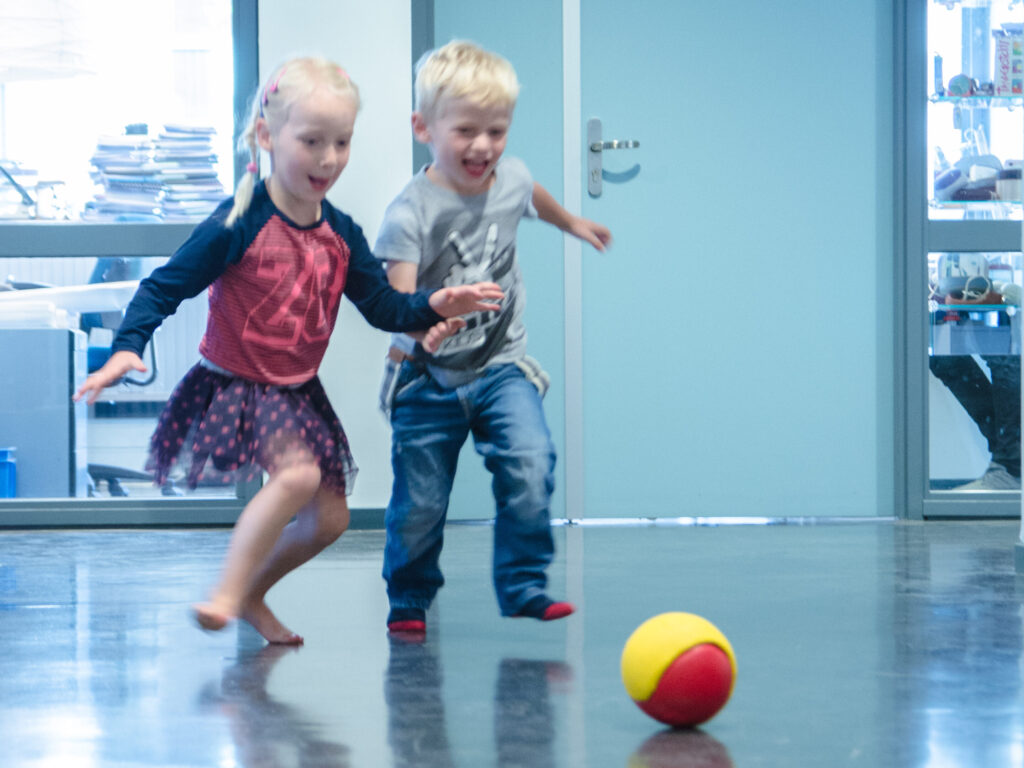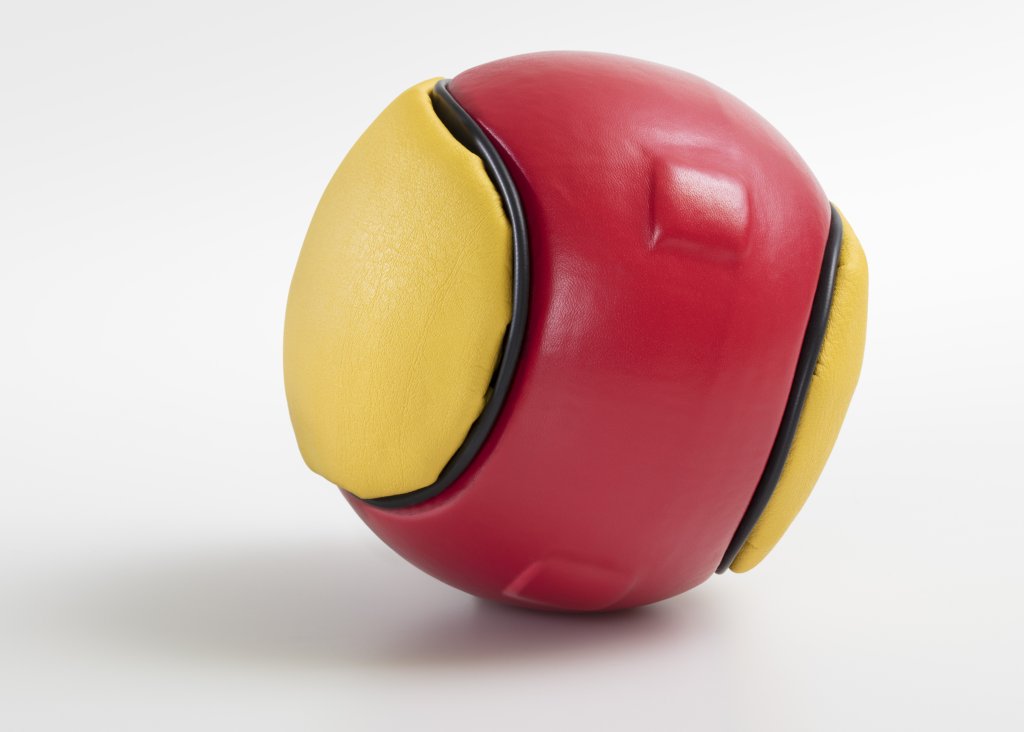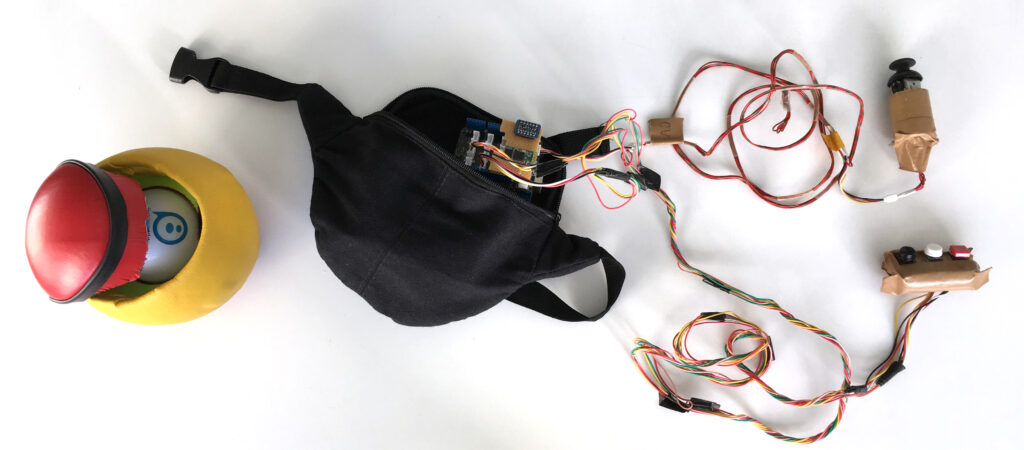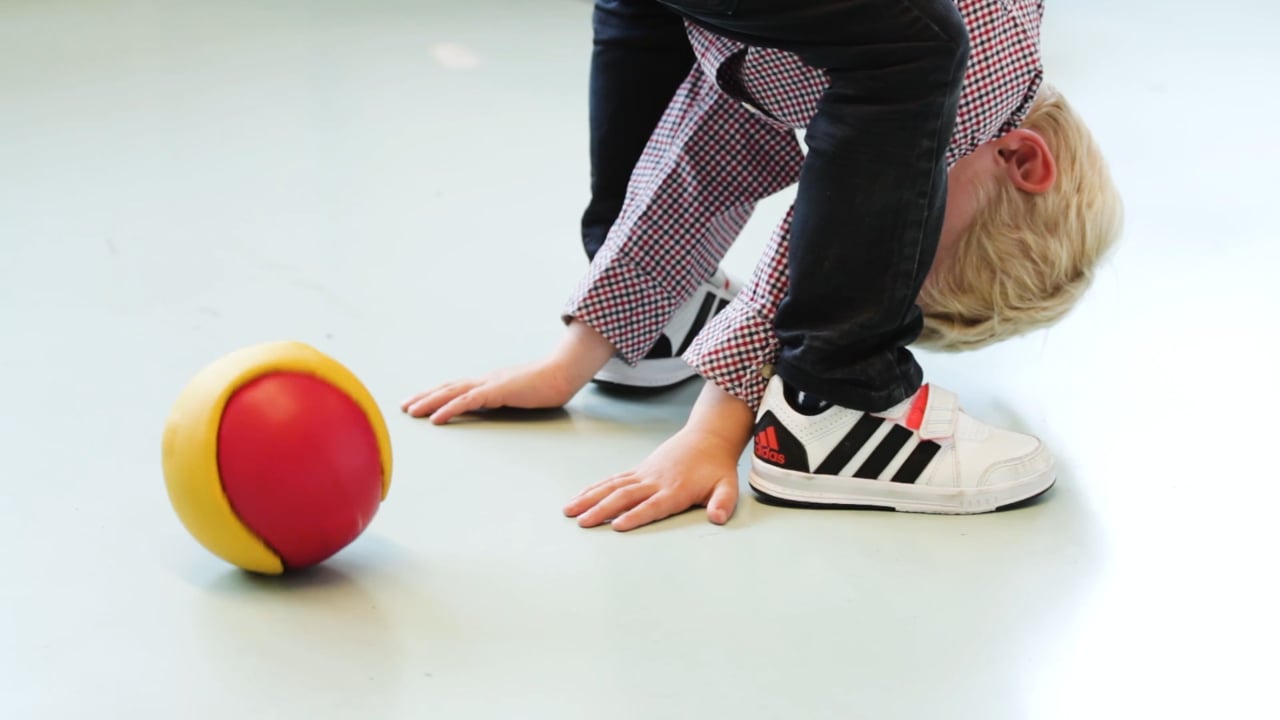Computational artefacts are increasingly hybrid, being experienced as both tools and agents, alternately shifting from one role to another, or simultaneously blending these different roles. This project investigates such hybridity by means of a robotic ball – Fizzy – that was designed to encourage physical activity in young hospitalised children. Young children tend to play in an unstructured and spontaneous way – they continuously alternate between different play activities, and are not yet receptive to rules, ‘recommended use’, or other forms of structure. The project investigated how a robotic ball could stimulate physical activity by facilitating such spontaneous forms of play and what the results could tell us about hybridity.
Fizzy is designed to perform a particular behavioural repertoire: It wiggles to catch your attention, rolls away when it is approached, shakes wildly when it is caught and purrs gently when it is caressed. As a product, Fizzy displays a level of ambiguity that fits well with the way that young children play.
Researchers noticed how both children and parents effortlessly framed Fizzy interchangeably as an ordinary ball, as a kind of creature, as a playmate. When the intentions of Fizzy align with others (i.e., Fizzy “played along”), Fizzy was seen as a playmate. When Fizzy has different behavior ideas, it is framed as a pet.
Fizzy has generated rich insights about how people continuously shift their framing of smart objects from tool to agent, and how these perceptions can blend in interesting ways. In terms of societal impact, the work revealed how relevant this hybridity is in facilitating physical activity and play in young children. Fizzy activates hospitalised children, despite their predicament, which in turn sparks joyful experiences within the family. Fizzy also has the potential to help children stay active in their domestic environments. Work is underway to turn Fizzy into a commercially available robot.







